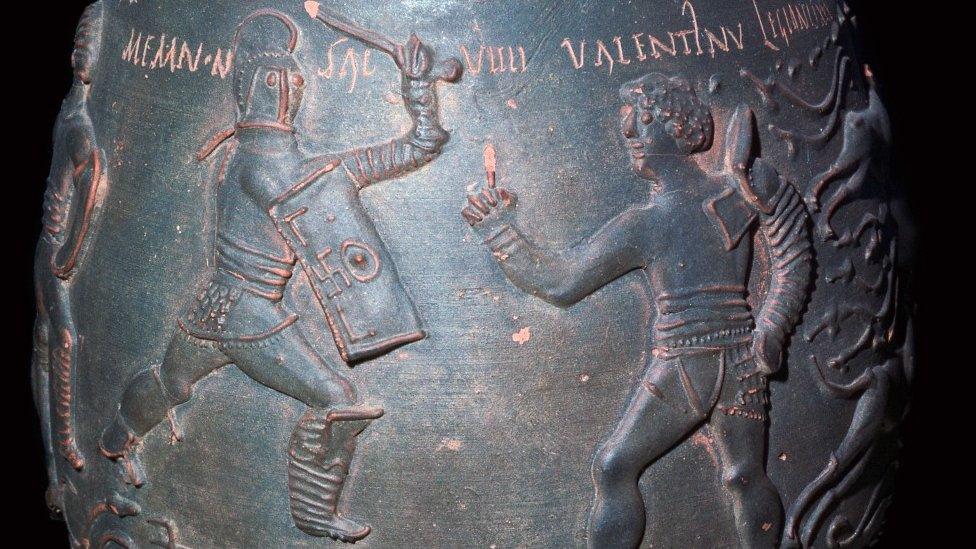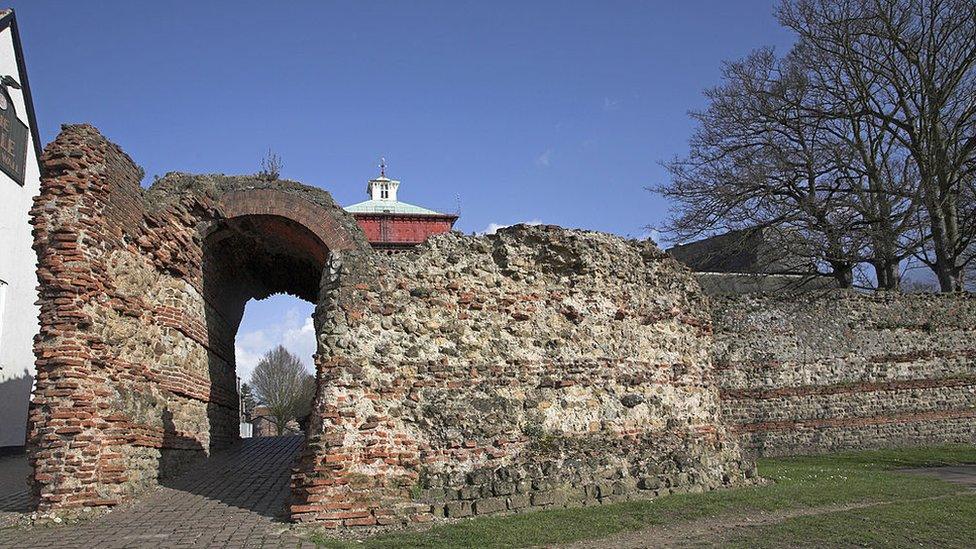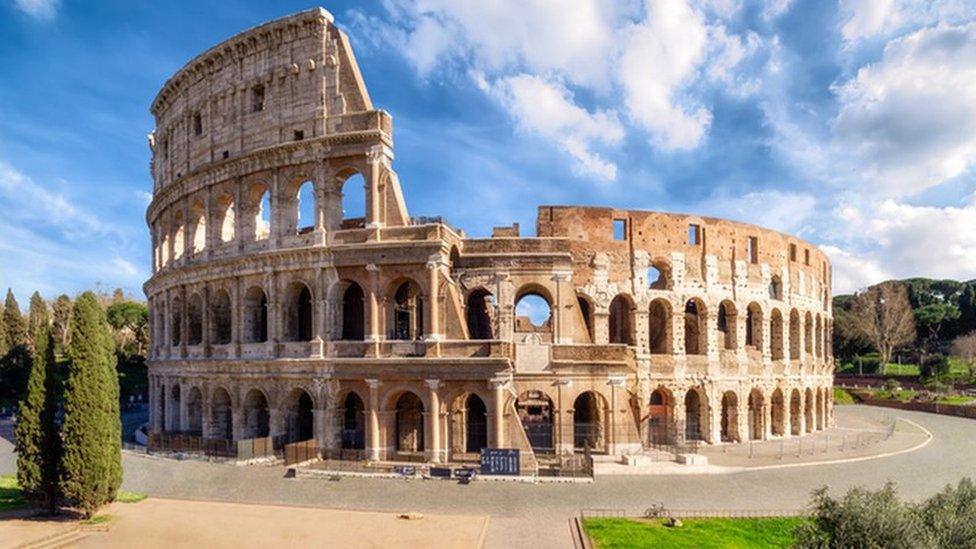Gladiators believed to have battled in Ancient Britain
- Published
- comments

The Colchester Vase features a pair of fighting gladiators called Memnon and Valentinus
When you think of gladiators, you probably imagine ancient Rome and huge crowds gathered in arenas such as the Colosseum - however new evidence suggests that they might have also appeared a lot closer to home too!
Experts believe that gladiator battles were once staged in the UK, in Roman-occupied Britain.
It comes after a 2,000-year-old vase was discovered in Essex, which features a pair of gladiators fighting.
Tests have now proven that the so called Colchester Vase was locally made and decorated, suggesting that the battle could have also taken place nearby!
What happened?

Colchester's Roman Wall dates back to the first century and is believed to be the oldest and longest surviving town wall in Britain
Colchester in Essex is one of England's most historic cities, having become the capital of Roman Britain soon after the Roman army landed on the beaches in Kent when they invaded in 43AD.
The Romans gave the city the name 'Camulodunum' and it became an important place as well as Britain's first major city.
In the mid-1800s, a vase was discovered in the area, which experts at Colchester Museum have described as "one of the most important, and perhaps famous, pots from Roman Britain".
The 23cm-high vessel is believed to be around two thousand years old, dating back to around 160-200 AD.
The vase depicts scenes including animal hunts and a fight between a pair of gladiators.

Rome's Colosseum was famous for hosting big gladiatorial fights and would draw in huge crowds of up to 50,000 people!
A new study has now found that the vase was made from local clay and that the names of the two gladiators - Memnon and Valentinus - were written into the clay while the pot was being made, rather than being added afterwards.
Experts believe this is important as it points to the fact that the names were part of the original design suggesting that the fight was likely to have been a local event.
Glynn Davis, from the Colchester and Ipswich Museums (CIMS), which owns the vase, described the findings as "incredibly significant".
He told the Observer newspaper: "There's nothing else like that from Britain. It's a commemorative piece, almost a trophy for the trophy cabinet."
Frank Hargrave, director of CIMS, added: "It's the only evidence of a Roman arena gladiator combat actually being staged in Britain."
